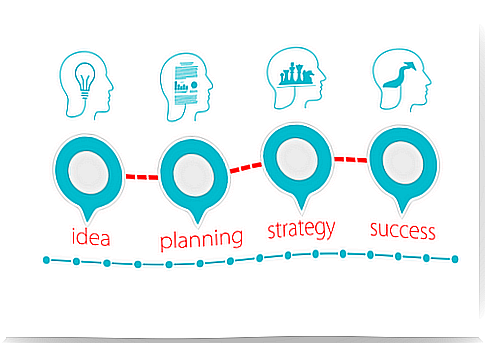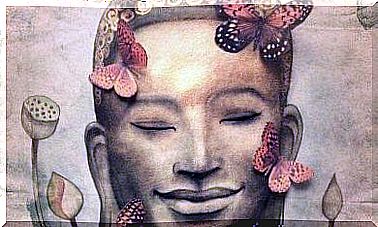Excellence: What Exactly Is It?

Excellence does not indicate the ability to reach the pinnacle of success, nor to become someone who never fails. As they say in the field of personal development, if we strive to excel, we will never lose motivation, but if we look towards the achievement of perfection, then we will only get suffering.
We make this small clarification because there are many schools, training courses or corporate training areas that aim at achieving impeccable excellence. Our society almost always supports the idea (and the need) to aspire to be the best in any discipline.
And here, in trying to make the new Stephen Hawking or the new Marie Curie a child, we actually push the little ones to embark on a hard path made of anxiety, disillusionment and frustration. Because whoever aspires to perfection suffers from the slightest mistake, gets stuck for a mistake and punishes himself for a failure.
On the contrary, those who work on excellence make motivation their springboard and personal growth their trademark. Just then a person understands that mistakes can be learned and that they are an opportunity for growth.

What is meant by excellence and how to work on it?
In recent years, a very interesting discipline has been emerging: the psychology of excellence. This area of knowledge aims to deepen the processes that enable people to achieve happiness and maximum fulfillment in their professional sector.
There are many children and adolescents with great talents who, however, abandon in adulthood. Musicians, gymnasts, artists, dancers… Why do people with such great potential, mastery and ability end up putting aside what “made them unique”?
The answer is simple: we often focus on talent without working on excellence. That is to say, we think that a person is good in a certain area because he is lucky; because either you have the talent or you don’t go anywhere.
In reality, however, to be really good in an industry you need a lot more dimensions, which go beyond natural talent; those that remind us what excellence really is: a habit, a sense of commitment and growth; the ability to strive, to motivate us towards a goal.
Child prodigies rarely become successful adults or happy people because we tend to neglect things like self-esteem, emotional management, or frustration tolerance. The psychology of excellence aspires to bring us closer to a number of dimensions that can help us feel fulfilled and satisfied once we reach our full potential.
Excellence is achieved with commitment
Excellence loses its meaning if we do not make a commitment to ourselves in reaching a goal. This means adding perseverance, the courage to step out of the comfort zone and our responsibilities, aware that obstacles may arise. This means that no one will be able to strive for us or pave the way for us.
Resilience
We know, the term “resilience” is in vogue. However, it is also that ability that allows us to get up again several times after each mistake, after each failure. Thanks to this dimension, you will be able to put aside any mistakes or hiccups to face new challenges.
Practice, practice and practice again to achieve excellence
Do, redo and redo again. Those who want to gain confidence in a discipline have only one choice : to work hard and focus on their growth. After all, no one comes into this world with the label of being the best at anything. It is all a matter of practice and concentration.
Reflection skills
One factor nourishes and stimulates excellence: the ability to reflect on one’s performance. If we are not able to monitor the evolution of our path we do not achieve anything, we do not perceive errors and we do not realize that we have to change strategy.
Self-confidence to achieve excellence
People with talent and a natural predisposition towards a particular area of interest tend to suffer from the so-called impostor syndrome. They consider themselves unreliable and stop trusting their abilities. Let’s face it clearly: without self-confidence you are not successful and you do not take advantage of the opportunities that happiness can offer.
This dimension is associated with self-esteem, with that fabulous muscle that helps us to be optimistic, resistant, because we have confidence in ourselves.

The importance of transcendence in excellence
According to Martin Seligman’s theory of human strengths, there is an indispensable virtue for the human being to build his own happiness: transcendence. But what exactly does this term mean?
It indicates the ability to make sense of what we are doing, then to look beyond. It means knowing that our growth, our opportunities for improvement never run out: there is always something to achieve, something that motivates us to nourish our ambitions and our hopes.
Transcending means going beyond the ordinary to reach the extraordinary and finally being able to feel good about ourselves, without having to compare ourselves with others. Regardless of the purpose of our life, our passions or our desires, to that emotional universe we will add the most important ingredient of all: excellence.









